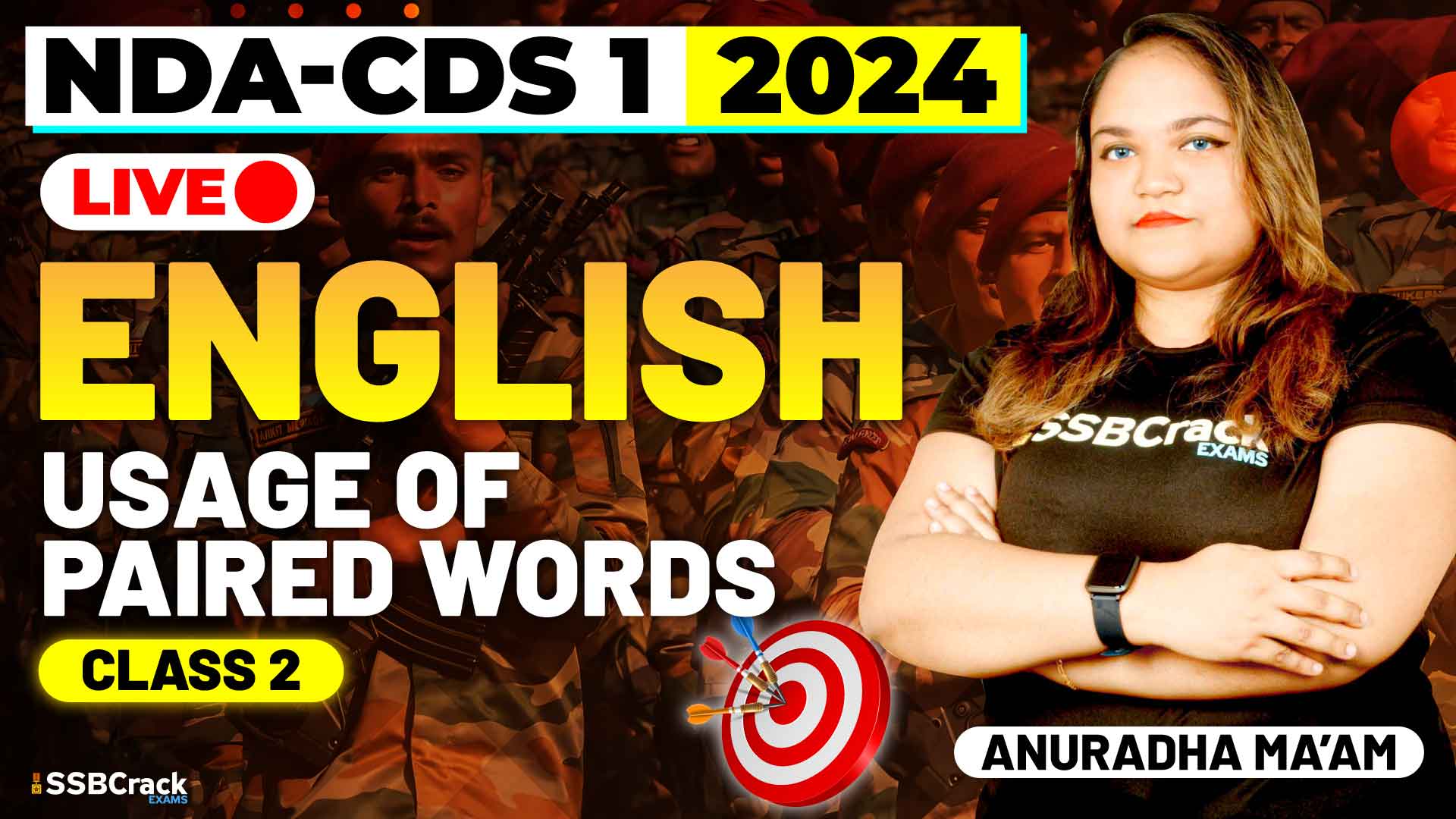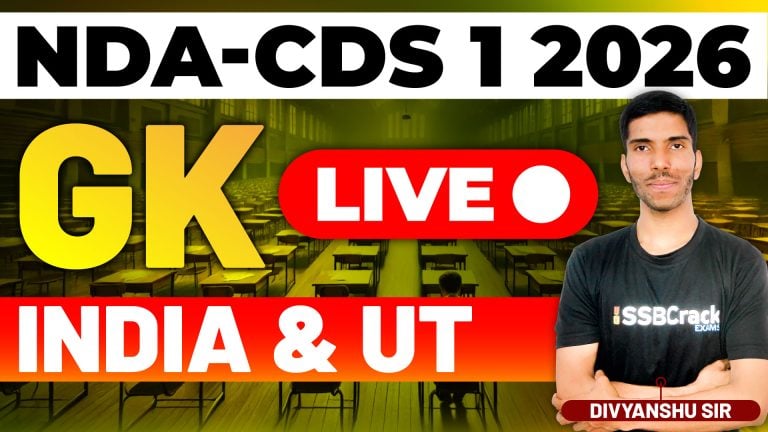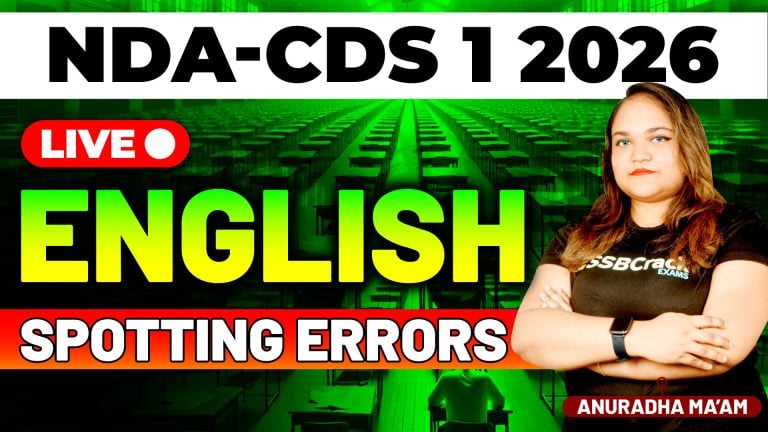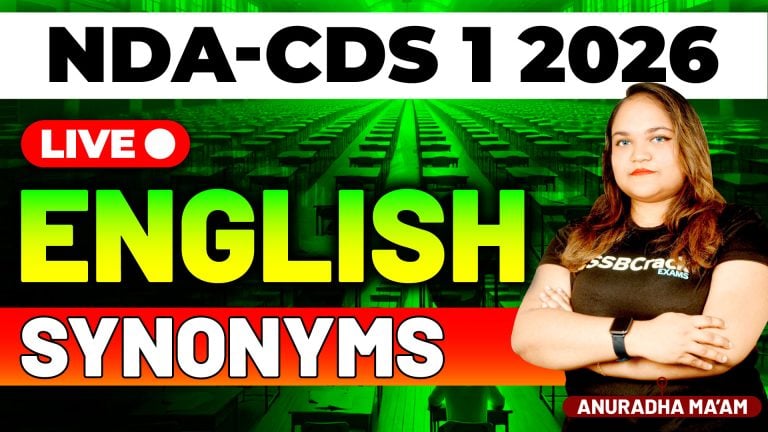The National Defence Academy (NDA) and Combined Defence Services (CDS) examinations are renowned for rigorously assessing candidates across various domains, including proficiency in the English language. Within the realm of the English section, the topic of Usage of Paired Words emerges as a crucial and nuanced aspect. This article aims to underscore the importance of mastering the Usage of Paired Words topic in NDA and CDS examinations, elucidating how this linguistic skill can significantly impact a candidate’s performance and readiness for a career in the armed forces.
Q) Endemic and Epidemic
(a)Endemic means spread in many regions and Epidemic means spread in a certain region
(b)Endemic means spread in a certain region and Epidemic means spread in many regions
(c)Endemic means spread inside a certain region and Epidemic means spread outside a certain region
(d)Endemic means spread outside a certain region and Epidemic means spread inside a certain region
Ans. (b)
Q) Extant and Extent
(a)Extant means existing and Extent means degree of something
(b)Extant means elongation and Extent means degree of something
(c)Extant means degree of something and Extent means existing
(d)Extant means existing and Extent means to elongate
Ans. (a)
Q) Incredible and Incredulous
(a)Incredible means wonderful and Incredulous means clever
(b)Incredible means sceptical and Incredulous means foolish
(c)Incredible means powerful and Incredulous means sceptical
(d)Incredible means impossible to believe and Incredulous means sceptical
Ans. (d)
Q) Mantle and Mantel
(a)Mantle means insect and Mantel means shelf over a fireplace
(b)Mantle means robe and Mantel means shelf over a fireplace
(c)Mantle means shelf over a fireplace and Mantel means robe
(d)Mantle means robe and Mantel means a covering
Ans. (b)
Q) Palate and Palette
(a)Palate means taste and Palette means colours
(b)Palate means colours and Palette means taste
(c)Palate means a flat utensil and Palette means colours
(d)Palate means colours and Palette means taste
Ans. (a)
Q) Peek and Pique
(a)Peek means to choose and Pique means a quick look
(b)Peek means to play hide and seek and Pique means to choose
(c)Peek means to make someone angry and Pique means a quick look
(d)Peek means a quick look and Pique means to make someone angry
Ans. (d)
Q) Precede and Proceed
(a)Precede means to go forward and Proceed means to come before
(b)Precede means to come before and Proceed means to go forward
(c)Precede means to come before and Proceed means to walk faster
(d)Precede means to introduce and Proceed means to end
Ans. (b)
Q) Prostate and Prostrate
(a)Prostate means to lie face up and Prostrate means to lie face down
(b)Prostate means male reproductive system and Prostrate means to lie face up
(c)Prostate means to lie face down and Prostrate means male reproductive system
(d)Prostate means male reproductive system and Prostrate means to lie face down
Ans. (d)
Q) Sensor and Censor
(a)Sensor means device to detect changes in physical environment and Censor means to cut indecent parts in a movie
(b)Sensor means to cut indecent parts in a movie and Censor means device to detect changes in physical environment
(c)Sensor means device to detect smoke and Censor means device to detect motion
(d)Sensor means device to detect motion and Censor means to cut indecent parts in a book
Ans. (a)
Q) Alternate and Alternative
(a)Alternate means to take turns and Alternative means to choose the right option
(b)Alternate means options and Alternative means to take turns
(c)Alternate means to take turns and Alternative means options
(d)Alternate means right and wrong options and Alternative means to choose the right option
Ans. (c)
For more questions, check out NDA & CDS 1 2024 Exam English Live – Usage of Paired Words – Class 2
- Precision in Communication: Usage of Paired Words involves understanding and correctly employing word pairs that go hand in hand, often expressing contrasting or complementary ideas. In military communication, precision is paramount, and candidates who master the appropriate usage of paired words demonstrate a heightened ability to convey precise meanings in a disciplined and structured manner.
- Demonstrating Clarity and Conciseness: Military professionals are often required to communicate with clarity and conciseness, especially in situations where brevity is crucial. The correct usage of paired words ensures that candidates can express ideas succinctly and accurately, aligning with the standards expected in the armed forces.
- Cultivating a Professional Vocabulary: The armed forces operate in diverse and challenging environments, and officers must possess a professional and nuanced vocabulary. Usage of Paired Words not only tests candidates on their understanding of specific pairs but also cultivates a vocabulary that is tailored to the demands of military communication.
- Navigating Descriptive Writing: Both NDA and CDS examinations may include descriptive writing components where candidates are expected to express themselves coherently. A solid command over the Usage of Paired Words enhances a candidate’s ability to construct articulate and impactful written responses, a skill crucial for success in these examination segments.
- Decision-Making Skills in Context: Questions related to the Usage of Paired Words often present candidates with choices, requiring them to make informed decisions about the most appropriate pair in a given context. This mirrors the decision-making demands in military settings where officers must make quick, accurate choices, aligning with the strategic and tactical nature of their roles.
- Enhancing Reading Comprehension: A comprehensive understanding of the Usage of Paired Words contributes to improved reading comprehension. Candidates proficient in this skill can swiftly identify the correct pairs within a passage, aiding them in understanding complex written material efficiently—a crucial competency in the military, where swift comprehension is essential for decision-making.
Conclusion:
In conclusion, the significance of the Usage of Paired Words topic in NDA and CDS examinations extends beyond its role as a linguistic exercise. It serves as a comprehensive evaluation of a candidate’s precision in communication, clarity, vocabulary proficiency, decision-making skills, and reading comprehension—all vital qualities for success in the armed forces. Aspiring candidates should approach the study of Usage of Paired Words with diligence, recognizing its pivotal role not only in securing points in the English section but also in preparing them for the linguistic and strategic demands of a successful career in the armed forces.







